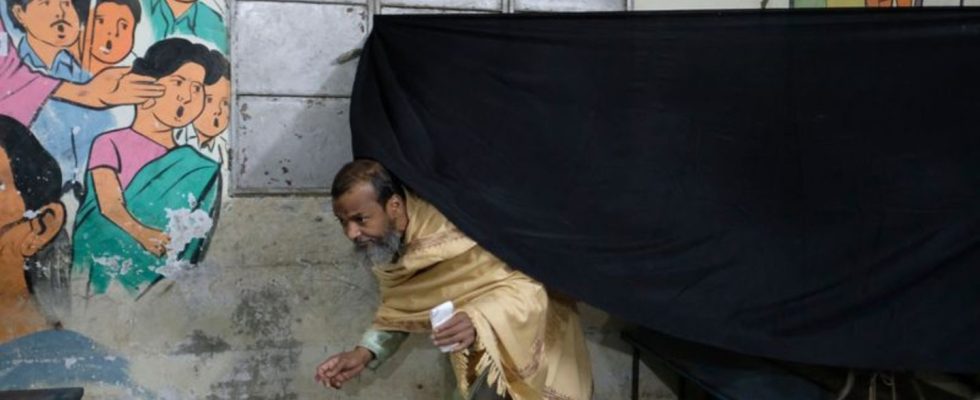Choose
Bangladesh elects new parliament – opposition boycotts
A man casts his vote in Dhaka. photo
© Mahmoud Hossain Opu/AP
120 million people can cast their vote. However, the largest opposition party is calling on them not to do so. The security situation is tense. There are numerous incidents of violence.
Both the BNP and human rights organizations accuse the increasingly autocratic Prime Minister Sheikh Hasina of targeting the political opposition and having thousands of critics arrested. Observers expect the 76-year-old to win a fourth consecutive term and a fifth overall. The results are expected on Monday.
Violence overshadows election
Around 30 incidents of violence marred the election. The police have arrested at least seven troublemakers in this connection, said a spokesman for the electoral commission.
Supporters of an independent candidate stabbed a supporter of the ruling Awami League party of autocratic Prime Minister Sheikh Hasina during a dispute in a district near the capital Dhaka, the election commission said. And according to police reports, two homemade bombs exploded near a polling station in Dhaka, injuring four people.
In the southeastern constituency of Chattogram, a candidate, Mustafizur Rahman Chowdhury, threatened police officers with cutting off their hands if they did not follow his orders, the election commission said. This caused chaos at a polling station. And in Tangail, some people stole ballot boxes and set them on fire, which the police fired at. Two people were injured and the polling station in question was closed.
A train was set on fire on Friday. Four people died in the fire. There were arson attacks on several polling stations on Saturday. The police blamed the BNP for the incidents. They in turn blamed the government.
Opposition staged large demonstrations
Around 120 million people were entitled to vote in the South Asian country with a population of 170 million. The BNP, however, called on voters not to do this. The party and its allies held large demonstrations in the run-up to the election. They called on Hasina’s government to resign, dissolve parliament and hand power to an interim government to allow fair elections. Because the Prime Minister did not comply, the BNP is not putting forward any candidates for the 300 seats in Parliament.
The poor, predominantly Muslim country has experienced an economic boom since 2009 during Hasina’s reign, with average income increasing significantly. Recently, however, high inflation has caused a lot of problems for many people. Hasina is the daughter of Bangladesh’s founding father, Sheikh Mujibur Rahman, who was assassinated along with his family in a military coup in 1975. Hasina survived because she was in Germany at the time.

